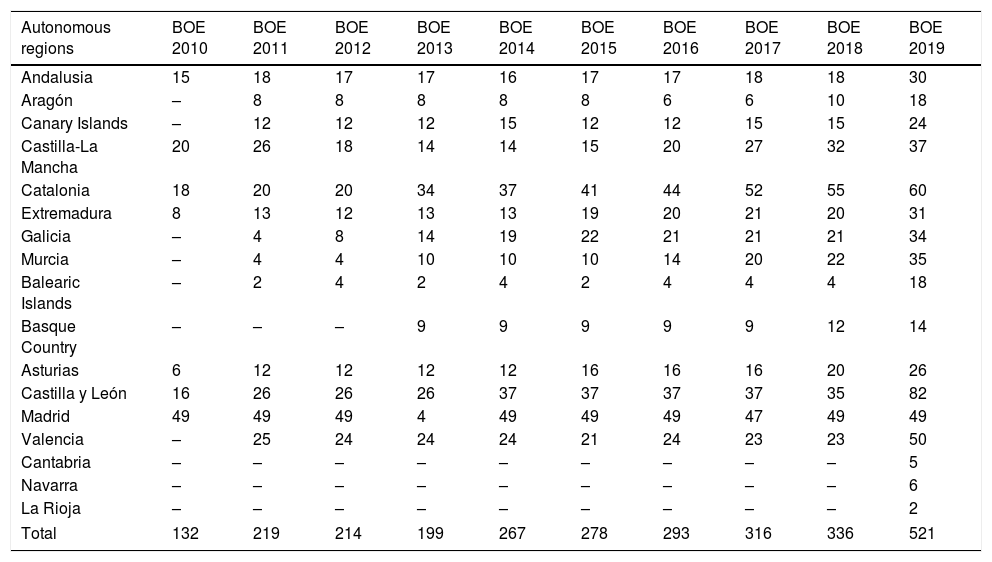More than 30 years have passed since the first Royal Decree that regulated nursing specialties was published in 1987. It is the Royal Decree published in 2005 that really allowed the training development of part of the specialties recognised in it (family and community nursing, paediatric nursing, geriatric nursing and occupational health nursing) since the obstetric-gynaecological specialist nurses (midwives) and mental health specialists had long since already started their training processes through the resident internal nurse model, today, training in the specialty of family and community nursing has been implemented in all the autonomous communities, but has not had the same development in terms of the incorporation of specialists in the health institutions of the respective health services of the autonomous communities.
This circumstance is generating a great lack of motivation among community nurses, both specialists and those who hope to obtain the qualification through a specialty exam.
Many of the objectives achieved to date have been made possible thanks to the work of the scientific societies of community nursing (Association of Community Nursing [AEC] and Federation of Associations of Community Nursing and Primary Care [FAECAP]), which have allowed progress to be made and the process not to be halted, although there are still many achievements to be made on which the aforementioned scientific societies continue to work.
In a society in which nursing care is increasingly necessary and demanded, it must have greater consideration and position in health policies, since it has demonstrated its effectiveness and can be the model that allows the health system to be sustainable. Therefore, nurses who specialise in family and community nursing must cease constituting an opportunity and become a reality.
Desde que en 1987 se publicase el primer real decreto que regulaba las especialidades de enfermería hasta hoy mismo han transcurrido más de 30 años. Es el real decreto publicado en 2005 el que realmente permitió el desarrollo formativo de parte de las especialidades reconocidas en el mismo (enfermería familiar y comunitaria, enfermería pediátrica, enfermería geriátrica y enfermería del trabajo) ya que las enfermeras especialistas obstétrico-ginecológicas (matronas) y las especialistas de salud mental ya habían iniciado sus procesos formativos por vía de enfermero interno residente desde tiempo atrás. Hoy día, la formación de la especialidad de enfermería familiar y comunitaria ha logrado implementarse en todas las comunidades autónomas, pero no ha tenido idéntico desarrollo en cuanto a la incorporación de las especialistas en las instituciones sanitarias de los respectivos servicios de salud de las comunidades autónomas.
Esta circunstancia está generando una gran desmotivación entre las enfermeras comunitarias, tanto las especialistas como quienes esperan poder obtener el título a través de la prueba excepcional.
Muchos de los objetivos alcanzados hasta la fecha han sido posibles gracias al trabajo de las sociedades científicas de enfermería comunitaria (Asociación de Enfermería Comunitaria [AEC] y Federación de Asociaciones de Enfermería Comunitaria y Atención Primaria [FAECAP]), que han permitido avanzar y que el proceso no se paralizase, aunque aún son muchos los logros por alcanzar en los que las citadas sociedades científicas siguen trabajando.
En una sociedad en la que el cuidado enfermero es cada vez más necesario y demandado, este debe tener una mayor consideración y posición en las políticas sanitarias, ya que ha demostrado su eficacia, y puede ser el modelo que permita hacer sostenible el sistema sanitario y, por tanto, las enfermeras especialistas en enfermería familiar y comunitaria deben dejar de ser una oportunidad para pasar a ser una realidad.







